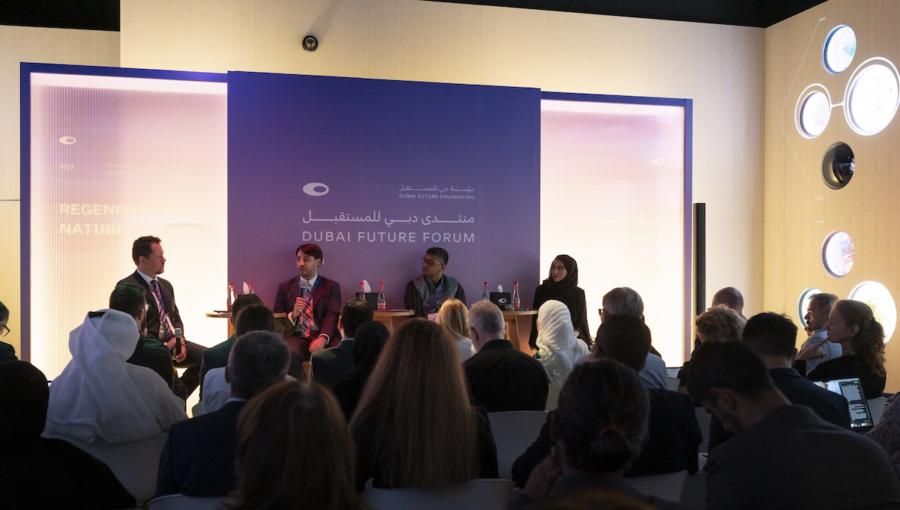The UAE’s strategy on energy diversification, and the Dubai Clean Energy Strategy 2050 – which aims to transform Dubai into a global clean energy centre by 2050 – are examples of the country’s commitment to the energy transition, said a top official at the Dubai Future Forum 2023, the world’s largest gathering of futurists, on Monday.
Dr. Aaesha AlNuaimi from Dubai Electricity and Water Authority (DEWA) said: “The visionary leadership in Dubai are playing ahead of time to reach energy transition. The pathway to energy transition is not the responsibility of the government alone but also of individuals.”
She was speaking during a panel titled ‘Energy Boundaries: What Powers Our Future?’, held under one of the forum’s main themes ‘Regenerating Nature’. The session explored how groundbreaking technologies are reshaping the way we harness and consume energy, as well as how our choices today can shape a sustainable and thriving energy future.
Deepak Krishnan from the World Resources Institute reiterated that “the energy transition is here to stay, and we cannot be stuck in the winner-loser conversations”, while Mehmet Onal from Shell said: “The public policy decision-makers are the key to the future if we are committed to the energy transition and energy security.”
The sessions under the ‘Regenerating Nature’ theme explored nature’s ability to restore itself, while having a positive impact on environmental ecosystems and habitats. A panel titled ‘Reloading the Map: What will Nature and Tech Ultimately Do for City Planning?’ examined the importance of regenerative and tech-conscious design, and the pathway towards a future where humans and nature can thrive in harmony with each other. The panel featured Melissa Ingaruca Moreno from ‘Mycohackers’, Johanna Hoffman from ‘Design for Adaptation’, and Adib Dada from TheOtherDada Integrated Consultancy and Architecture.
Speaking at a session titled ‘Out of This World: Why Does Space Hold So Much Potential for Energy?’, Dr Sanjay Vijendran from the ‘European Space Agency’, said that space-based solar power is the ultimate and one of the most sustainable untapped sources of energy.
Echoing his views, Professor John Mankins from Artemis Innovation Management Solutions added that the introduction of hyper-modular architectural approach and emergence of robotics have helped the movement in harnessing space-based solar power. Professor Naoki Shinohara from Kyoto University said the world is also stepping up to promote wireless power transfer from space.
